Movie of the Week: Adventure (1945)
Gable’s Back and Garson’s Got Him in this week’s Movie of the Week, Adventure (1945).

After Carole Lombard died in January 1942, the widowed King of Hollywood halfheartedly completed Somewhere I’ll Find You and retreated from public view. Gossip items popped up here and there, announcing he’d star in this film or that film, but none came to fruition. Instead the public saw their haggard-looking King being sworn into the Army Air Corps in August 1942, wearing the same suit he wore to his wife’s funeral.
Clark Gable had reigned over Hollywood for eleven years at this point; in the early 1930’s he starred in several films a year. Now 1943 and 1944 passed without any Gable films. So it was indeed a big deal when the King strolled back onto the MGM lot. Clark, now a decorated war hero and a widower, was a bit thicker around the middle, a bit grayer around the temples, a bit sadder in the eyes…but was back in the saddle.
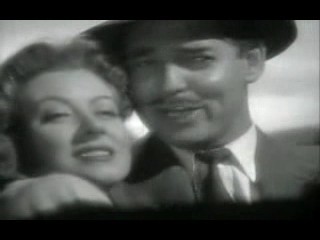
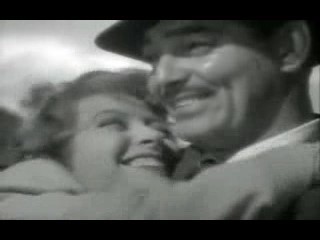
Adventure seemed like an easy role for him to slip into. It was directed by his buddy Victor Fleming (Gone with the Wind, Test Pilot, Red Dust) and he played one of his usual witty, rogue womanizing bachelors.
His character is Harry Patterson, a hard-boiled, cynical sailor. When his ship is destroyed by a Japanese sub and he and his crew–including best pal Mudgin (Thomas Mitchell) –are stuck in San Francisco, he meets a stoic spinster librarian, Emily (Greer Garson) and her bubbly roommate, Helen (Joan Blondell). Despite their differences, Harry and Emily fall in love and impulsively decide to get married. They soon realize they made a mistake and Harry heads back out to sea. But he discovers maybe Emily has changed him and the life of a sailor isn’t as appealing as it was before.
Let’s get this out of the way. Clark and Greer have zilch for chemistry. Zip. Nada. Greer was a relative newbie on the MGM lot, while Clark had been away she hand climbed to the top of the heap with hits such as Mrs. Miniver and Random Harvest. Her uppity, prim and proper librarian is supposed to be the perfect foil for Clark’s uneducated, rough and tumble sailor. Instead I spend the film wishing he’d have ended up with the bubbly Joan Blondell. The script doesn’t even give you enough reason to understand why he dumps Joan for Greer, either. And why exactly Joan seems to be okay with this.
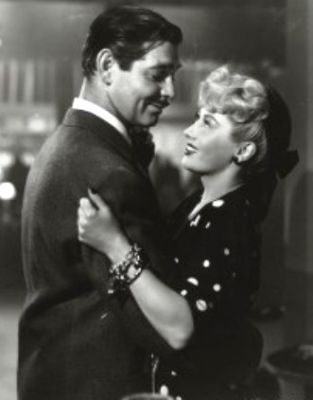
Clark’s character is unlikable for the majority of the film, mocking education, religion, and pretty much anything else other people believe in. Upon meeting Greer at the library, he scoffs at the idea that books are useful to anybody and mocks her trying to keep him quiet. Nice guy.
Coming upon a young sailor staring out at the ocean, he lectures him, “That’s just black water. Don’t get to thinking you can get no place on it. The ocean don’t do nothing but drive you ashore and the land drives you back to sea.”
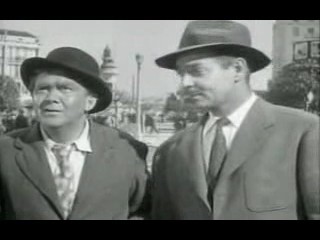
After their ship sinks and a plane rescues them, Thomas Mitchell (yup, Scarlett’s dad) sets out to make right with God–promising no bad women, no hard liquor, no knife fights and to give all his money ($2,500) to the church. Clark takes the first opportunity to get Thomas liquored up, surrounded by women and in a fight. Oh and he loses all his money in the bar. Clark doesn’t feel remorse about any of this, in fact he shows no remorse whatsoever until Thomas’ character dies. And then, of course, he has a change of heart about life! Then it is evident we are supposed to “like” Clark as he realizes the errors of his ways, but he is such a jerk by that time, who can forgive him? He is awfully cruel to Maria (Lina Romay), a Spanish girl who is madly in love with him and waits patiently for his visits, he mocks Thomas’ character up until his death and it appears he really only married Greer to get her into bed and always had every intention on leaving her.
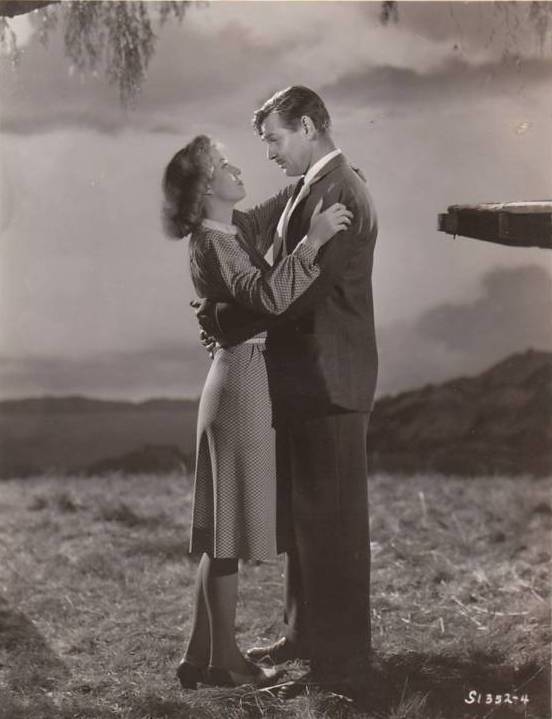
I can imagine that Clark was not in a good place during the making of this film. After spending years overseas, landing with a thud back on the MGM lot and going home at night to the ranch he and Carole had shared were a harsh reality.
Greer recalled later, “Adventure was not a good experience. Clark was very taciturn and withdrawn and, I think, somewhat embarrassed at having to deal with things like wardrobe fittings and makeup after the war years. Despite his reputation, he was not really a ladies’ man. I think he was most relaxed when he was out hanging with men.”
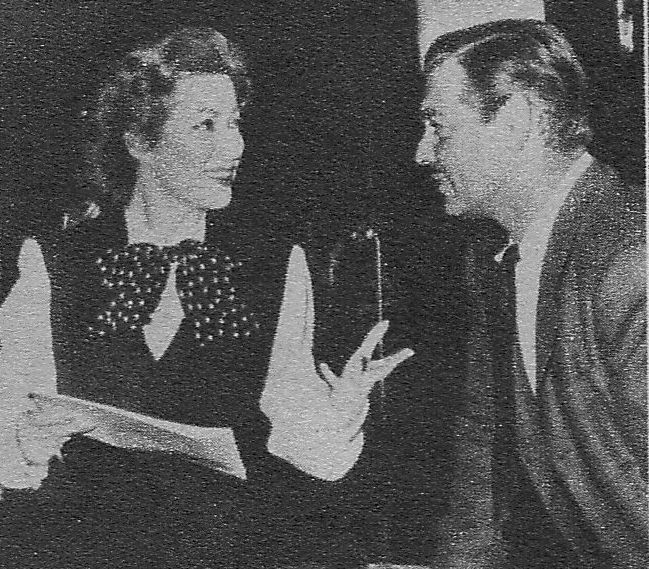
One can’t help but wince at Clark calling Greer his “screwball” a few times throughout the film– “Three days. Don’t regret a minute of it; one long laugh! She’d throw a kiss with one hand and a rock with the other! That screwball!”–Considering he was recently widowed by “the Queen of Screwball,” you can’t tell me he never made the connection.
This film is often described as being an enormous flop, but that isn’t at all true. Crowds flocked to see the return of the King of Hollywood, and Greer was immensely popular. The film had a grand premiere at Radio City Music Hall and had a healthy gross of over $3,800,000. It was however, critically panned for its mismatched stars, meandering plot and syrupy melodrama. I think it’s just gone down in history as a disappointment because the King of Hollywood deserved better for a comeback vehicle.
Nutshell review is here
Full review is here
Follow us on Instagram and Facebook all week for photos and trivia
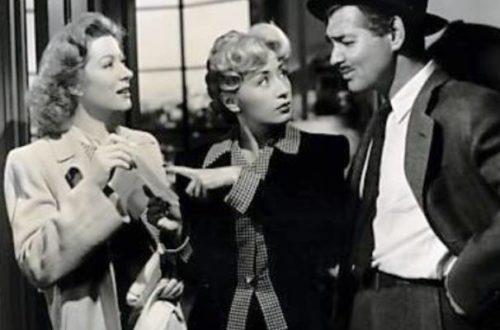

One Comment
Lou Cella
I couldn’t agree more with you about Gable deserving a better vehicle for his return. There is a curious photo you have no doubt seen from the set of this film. It shows costar Thomas Mitchell, Robert Montgomery, John Ford and John Wayne with Clark. Montgomery Wayne and Ford were together for the war film “They Were Expendable”. It occurred to me that perhaps Ford wanted Gable for the role Montgomery played. That would have made for a much better situation all the way around. They Were Expendable was a great film but with Clark Gable starring with the Duke would have been epic. Fun to think about isn’t it.